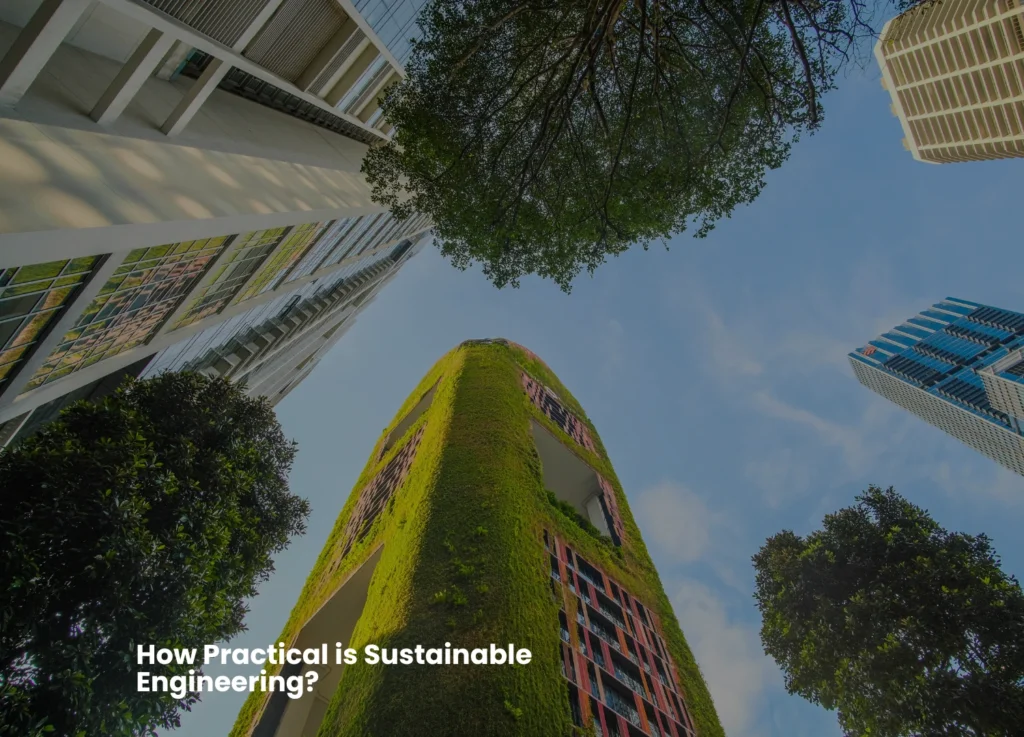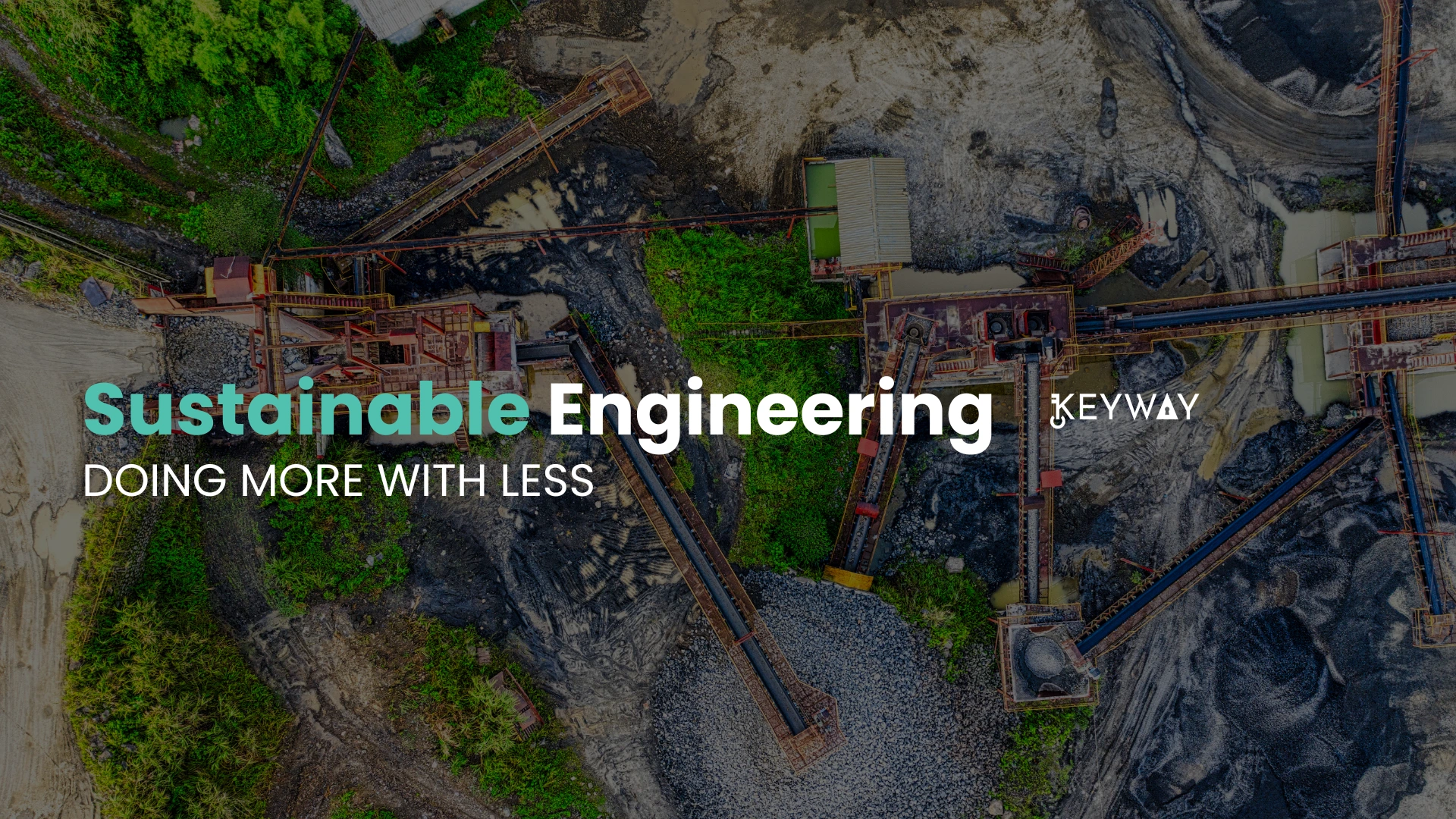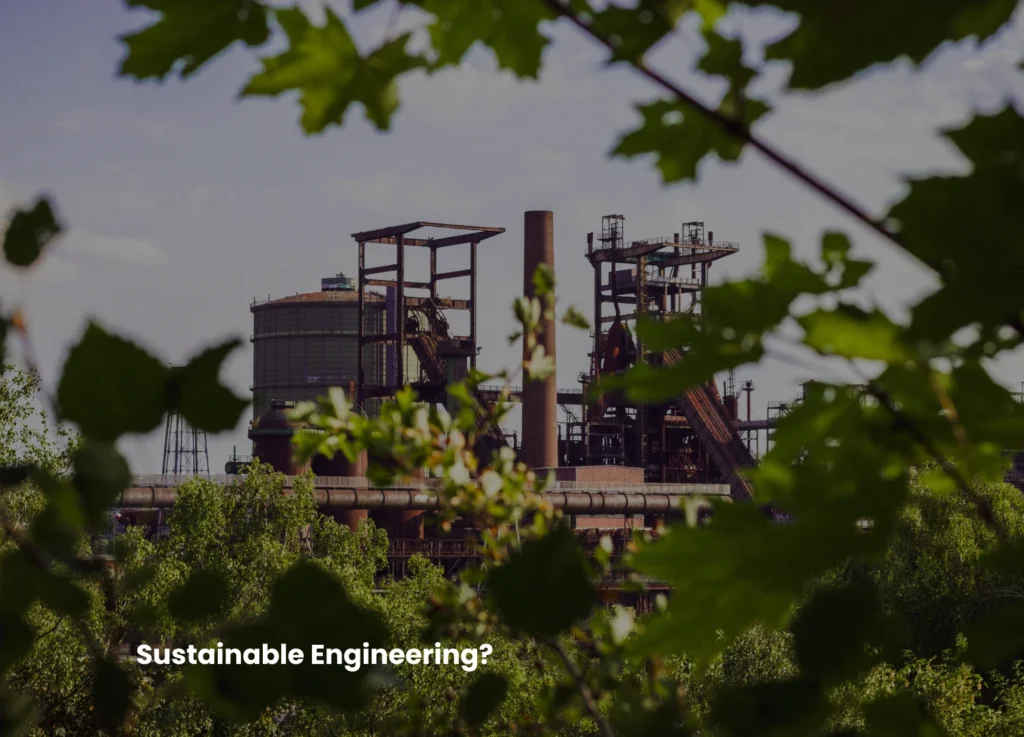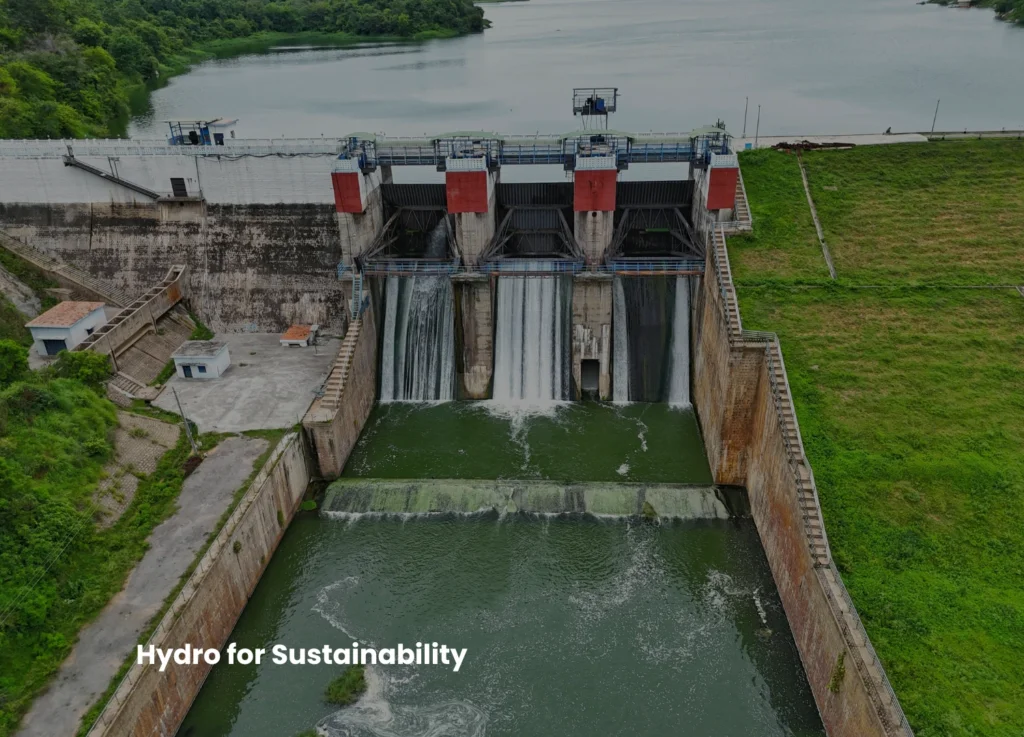As the world grapples with climate change, dwindling natural resources, and rapid urbanization, the need for sustainable solutions has never been more urgent. As the foundation of the modern
civilization, engineering is central to the attainment of this sustainable future.
Engineers are the creators of the progression, they create the systems, vehicles, and infrastructure that characterizes the way we live, labor and construct. Nowadays, it is not only about performance or efficiency, it is about responsibility. Sustainable engineering is concerned with doing more with less, being innovative and growing without exploiting finite resources on the planet.
We shall discuss in this blog what sustainable engineering is, why this is so important to our future and how engineers in various industries are re-evaluating their designs, materials, and processes to create smarter, cleaner and greener solutions.
Sustainable engineering is a discipline that entails designing, developing and executing systems that have minimal adverse effects on the environment, economy and the society. It aims at establishing efficient, cost-effective and ecologically balanced solutions.
It is not about solar panels or waste recycling- it is about rethinking the whole lifecycle of things, both the materials and their disposal or their reuse. The sustainable engineering is mindful about questions such as:
1. Is it possible to produce this product using less waste or energy?
2. Are the components designed in an easier way to be fixed, reused or recycled?
3. How is this material or process affecting the environment in the long run?
An example would be the substitution of the steel parts with lighter composite materials which not only decreases the production emissions but results in better fuel efficiency in vehicles. On the same note, since packaging is biodegradable, redesigning will lead to less waste in the landfill. Sustainable engineering in a nutshell is not a different discipline, but a practice that should be incorporated in all fields, be it civil and mechanical, electrical and software engineering.
Why Is Sustainable Engineering Important?
The importance of sustainable engineering can be understood through four key perspectives: environmental, resource-based, economic, and social.
1. Environmental Protection
People, in all their production and transportation, have contributed to an enormous emission of greenhouse gases and pollution. Sustainable engineering will deal with this through waste reduction, better energy use, and new technologies that do not use fossil fuels but rather renewable energy. Industrial plants that capture carbon or biodegradable plastics are examples of such ways to reduce the damage to the environment on a long-term basis. Engineers are coming up with products that do not destroy the nature.
2. Smarter Resource Management
Some natural resources such as water, fossil fuels, and some minerals are finite. Engineers are concerned with efficiency in resources, i.e. doing more with less. This could include installing water recycling systems at the factories, ensuring that the used materials are used optimally to produce less scrap or even use different raw materials such as bio-based composites. Each drop or gram saved will make the planet more sustainable.
3. Economic Benefits
Although sustainable technologies can be very expensive in the short-term, their economic payoff is immense in the long run. Operation costs can be drastically lowered by use of energy saving machinery, waste-to-energy systems and optimization of supply chains. As an illustration, building systems that are efficient in energy, smart insulated, passive ventilated and solar powered reduce electricity bills and add value to property.
4. Social Responsibility
Sustainability can be applied to humanity since communities and the future generations can prosper. The infrastructure engineered by engineers offers clean water, clean air, and access to equitable and fair energy. Sustainable engineering can increase the quality of life whether it is the improvement of rural electrification, public transportation, or factory safety.
Innovative Sustainable Engineering Practices
The push for sustainability has inspired engineers worldwide to reimagine traditional systems. Let’s explore how different sectors are innovating to do more with less.
1. Green Building Design
Construction industry contributes close to 40% of the total CO2 emissions globally. To limit this, engineers and architects are relying on green building principles. The modern buildings are also designed more as a living system and are also designed in the best way possible to maintain natural light, temperature regulation and less wastage. Solar panels, rainwater harvesting, and smart glass that can change the transparency are technologies. Such accolades as LEED and BREEAM establish international standards of energy-efficient and eco-friendly buildings. Gardens by the bay Singapore incorporates natural ventilation and solar shading, which helps save more than 30% of cooling energy.

2. Renewable Energy Systems
One of the most important engineering revolutions is the move towards renewable energy as opposed to fossil fuels. Engineers are working on more effective solar panels, intelligent wind turbines, and micro-hydro to small localities. Renewable energy is made more dependable with advances in the field of energy storage such as in lithium-ion or even solid-state batteries. Such initiatives as floating solar farms and vertical wind turbines allow such expansion of the possibilities of renewable energy beyond the conventional landscape. In third world countries, small scale systems run on renewable energy are used to operate schools, water pumps and healthcare facilities that were previously off grid.

3. Circular Economy and Waste Reduction
A linear economy is a producer, a consumer and a disposer. The circular economy is aimed at recycling, repairing, and reusing in order to retain materials in the cycle. Products are being designed with engineers in mind so as to be disassembled and recycled overtime such as modular smartphones or vehicles with electric motors that can be replaced. The processes in the industries are changing and wastes heat is then changed into energy and materials are recycled to be used. Aerospace industry, such as that, uses carbon fibre to recycle new aircraft.
4. Sustainable Transportation
Transportation is changing to electric vehicles, hybrid systems, and hydrogen fuel cells. Sustainability also includes infrastructure: smart roads ensure efficient traffic, public transport goes electric, and urban expansion makes cities bike-friendly.
5. Sustainable Manufacturing
Sustainability in manufacturing is whereby practicality comes to meet responsibility. Additive manufacturing (3D printing) reduces wastage, factories use renewable energy, and IoT monitoring systems real-time track the use of energy. Wastes are recycled, e.g., offcuts of steel are melted into new items and plastic scraps are turned into composite.
Challenges to Sustainable Engineering
Sustainable engineering has its challenges in reality:
- High Start-Up Costs: Sustainable technologies usually need a lot of initial investment.
- Cultural Resistance: Cultural industries are not ready to do away with old systems.
- Small Resources: SMEs might have either no money or no experience.
- Barriers to Regulation: The policies can be outdated, create disincentives against renewable use or recycling.
The governments, industries, and engineers must work together to make sustainability a reality and
economically feasible.
The Future of Sustainable Engineering
The next decade will see sustainability move from an option to a necessity. Engineers will be central to this transformation, driving innovations in:
Smart cities that use data to manage energy, traffic, and waste efficiently.
Affordable renewable energy integrated into every level of infrastructure.
Zero-waste manufacturing systems powered by circular economy principles.
Greener materials, such as bio-concrete, graphene composites, and biodegradable polymers.
With AI, IoT, and advanced simulation tools, engineers will be able to predict environmental impacts even before a product is built, ensuring every design choice is informed and responsible.
Conclusion: Building a Greener Future
Sustainable engineering isn’t a trend, it’s the foundation of future innovation. It represents a shift from linear progress to responsible progress, where efficiency, creativity, and care for the planet coexist.
At KEYWAY, we believe sustainability is not just about what we build but how we build it. Our engineering solutions are designed with efficiency, reusability, and longevity in mind, helping businesses achieve more while consuming less.
The engineers of tomorrow will not just design machines or buildings; they’ll design systems that sustain life. The sooner we embrace this responsibility, the brighter our shared future will be.
#Sustainability #Engineering #Innovation #GreenEngineering #FutureOfEngineering





